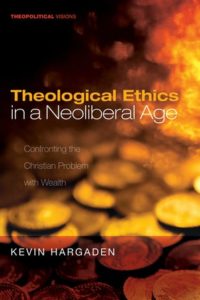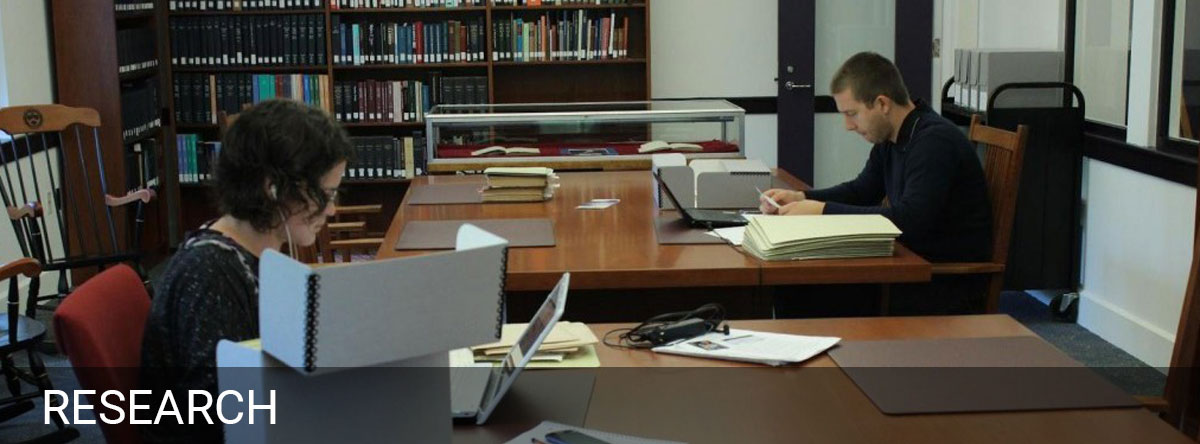
Kevin Hargaden, Theological Ethics in a Neoliberal Age: Confronting the Christian Problem with Wealth (Eugene: Cascade Books. 2018), ix+181 pp. $28.00 (paperback).
Reviewed by Henry Walter Spaulding III (April 13, 2021)
It is no secret that material wealth looms over many aspects of human life. Though material wealth always existed at the forefront of human moral aliment, scholars of many fields have termed a new problem with wealth. Hargaden terms this new obsession neoliberalism, “a rationality that seeks to apply the methods of economics to all aspects of life” (4). Interested readers can find many resources that describe the various histories and properties of neoliberalism. However, very few works exist to aid the Christian theological imagination in navigating neoliberalism. Sources exist that name Christianity as the source of such a movement, but rarely does one find an explicit theological critique of neoliberalism relevant to the academy and the Church [1]. Kevin Hargaden’s book Theological Ethics in a Neoliberal Age fills such a gap, adding an important contribution to recent research on the intersections of Christianity and neoliberalism such as Adam Kotsko’s Neoliberalism’s Demons (Stanford, 2018), Devin Singh’s Divine Currency (Stanford, 2018) and Dotan Leshem’s, The Origins of Neoliberalism (Columbia, 2016).
The chief argument of Hargaden’s book lies in a vigorous rejection of neoliberalism. Neoliberalism confronts Christianity in a specific way because it, as Hargaden writes, “represents a theological problem for Christians because those who live under its reign are encouraged to share a vision for our common life that is unavoidably idolatrous” (4). Hargaden insists that Christian theology, with a primary focus on the parables of Jesus, provides the imagination necessary to resist the all-encompassing idolatry of wealth. Hargaden’s interpretation of wealth relies on an apocalyptic presentation of Karl Barth’s exegesis of the parables to draw the reader’s immediate attention to the normative claims of the expectation of in-breaking God’s kingdom (36).
By relating neoliberalism to the apocalyptic coming Kingdom of God, Hargaden identifies time as a central piece for the reader’s consideration. According to Hargaden, time is a central intersection in the neoliberal age and the expectation of God’s coming reign. In the neoliberal age, humans must measure their finite moments according to patterns of production, consumption, debt, and competition that fundamentally reorients our understanding of humanity. By measuring time according to interest rates or production of products, humans must weigh the worth of their life according to a harsh economic calculus that puts humans tragically at odds with one another. Human moral thinking reduces itself to economic practicality that always reaches for the economically advantageous.
Hargaden turns to Karl Barth to address the problem of neoliberalism. As apocalyptically interpreted by Karl Barth, the parables “explode any hope” of the ethics offered by neoliberalism. Hargaden recognizes that the parables often deal rather explicitly with wealth, a fact that was not lost on Barth either. As Hargaden writes, “The message is in the medium and by embedding his economic discussion in the form of enigmatic short stories, Jesus teaches us in ways that are complex, open, and resistant to readings that seek only for the bottom line” (41). Hargaden recognizes that when approaching the parables, one needs a guide.
The great service Hargaden performs for those in Barth studies is the conversation he sets up between economic thought and Barth’s theology. Hargaden develops Barth’s interpretation of the parables as an economic theology, a connection also discussed in works such as George Hunsinger’s Karl Barth and Radical Politics Cascade, 2017) and Willie James Jenning’s “A Rich Disciple?: Barth on the Rich Young Ruler” in Reading the Gospels with Karl Barth (Eerdmans, 2017). In choosing Barth as his economic guide, Hargaden acknowledges a long-appreciated element in Barth’s theology, namely his exegesis of Scripture. Barth is an unmatched exegete among his peers and offers a unique interpretation of the Scriptures. Hargaden chooses several parables with specific attention to the various ways that parables expound upon the idea of time, wealth, and kingdom: the parables of the ten virgins, the parable of the talents, and the parable of the Sheep and Goats. Hargaden provides the necessary information to understand the parables when he states that they “puncture” the neoliberal frame of reference out of which culture operates (138). Barth brings this puncturing to life in a way that directly confronts the decisions one makes. Hargaden locates the act of economic decision in one’s understanding of humanity. Neoliberalism envisions humanity according to a harsh rubric of production and consumption that shapes bodies according to a biopolitics of economic power. However, the parables envision a different understanding of humanity. According to Barth’s interpretation, as presented by Hargaden, humanity only understands itself to the inescapable mystery of God’s eschatological inbreaking. Rather than measuring human time through the logic of production and consumption, the human celebrates a different time where capital is not the source of one’s life but the extravagance of a kingdom that requires Christians to give lavishly of its resource for a kind of abundance not found in production and consumption (172). This is the meaning of the parable according to Hargaden set free through the interpretation of Barth.
Appropriately, the only response to the parables is praise. Hargaden recognizes that the parables are not just compelling literature, but an entire world that one can only dare to approach through the act of praise. In worship, Christians playfully enter the rich young man’s world to answer as a community the same question that confronted him: what possessions possess contemporary Christianity? How might the rich young man’s path become our own? In Hargaden’s rendering, only through a steady diet of parable and table can the contemporary Christians resist neoliberalism’s lure. It is not a theoretical concern, but one practically embedded within the appetite of the Christian. Through this nourishment, Hargaden hopes that the body will “squander [its] wealth on the kingdom, in exchange for the kind of abundance” only found in the parables (172). Though many Christians do practice the Eucharist and still hoard wealth, this is, according to Hargaden, in direct violation of the eschatological command to divest oneself of such opulence.
Before concluding, Hargaden spends significant time exploring a practical analysis of neoliberalism through his engagement with the Irish economy. Nevertheless, Christians of every culture must perform this kind of honest work. Neoliberalism is a theological problem that confronts the gospel and attempts to narrate a new ekklesia by binding our desires to a different time. In other words, utilizing the idiom so prevalent in Hargaden’s book, neoliberalism is an apocalyptic power aligned with the powers of sin and death. As an apocalyptic theologian, this is an area to which I wish Hargaden had dedicated more space. However, neoliberalism’s seductive influence cannot be denied, and those familiar with apocalyptic theology will naturally make the connection.
By way of conclusion, I offer this brief story that summarizes my appreciation of Hargaden’s book. I use this book in a senior-level course on Christian ethics in the general education curriculum. I have students of every major in this course, from Education to Theology. One day after class, a very bright Business major approached me about Kevin’s book. She stated that she lamented having never once heard this account of money as a Business major. She concluded our conversation by stating that the book changed her mind about wealth. As a business major, she learned one narrative about wealth and its banality, but after reading this book she recognized it was a banality of evil. As I reflect on that day, I wonder if Christian theology often suffers from a false modesty that must tailor its efforts to the limits of the neoliberal mind to remain “practical” or “relevant.” As one who grew up in the Church, she never once heard a sermon or lesson that challenged neoliberal accounts of wealth. One of this book’s most outstanding contributions is its lack of modesty concerning the gospel’s demands, which includes a rejection of wealth. I assume that what ails our present moment is not that we teach Christian ethics, and it fails, but that we do not try. Theological Ethics in a Neoliberal Age asks readers to try.
Henry Walter Spaulding III, Adjunct Professor of Christian Ethics, Mount Vernon Nazarene University
The views expressed here are strictly those of the author; they do not necessarily represent the views of the Center for Barth Studies or Princeton Theological Seminary.

